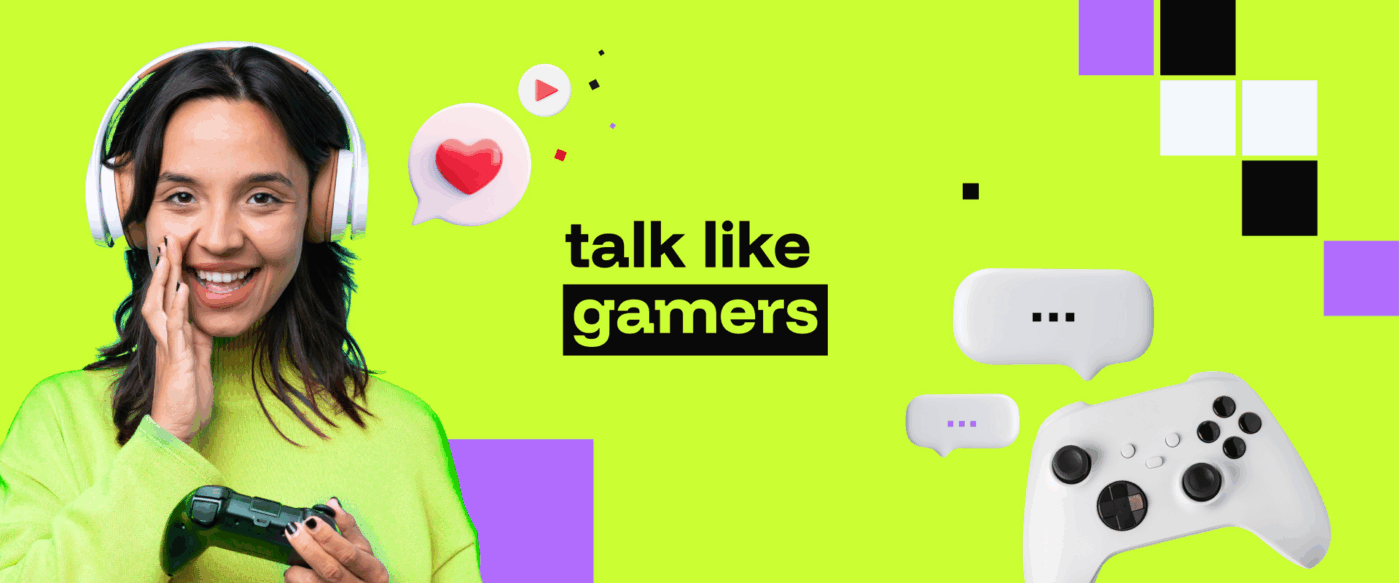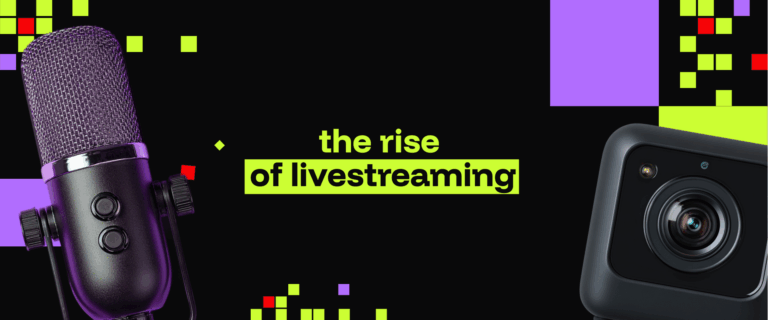The idea behind gaming words in gaming marketing
Gaming language in advertising isn’t just a trend — it’s a smart strategy. When used authentically, gamer slang can build stronger connections with communities on platforms like Twitch.
Language on its own is one of the strongest tools in marketing. However, it only works when it truly speaks to the right people. On platforms like Twitch, the audience lives and breathes gaming. Therefore, using the right language can make or break your campaign. As has been noted, these users expect brands to get it. They want brands to speak their language, understand their humor, and blend into the community.
Moreover, the Twitch community community is not only growing, but it’s also highly engaged, especially during major game premieres or esports events. For advertisers, this means one thing: if you want to unlock the full potential of Twitch advertising revenue, you need to know how to speak like a gamer. Not fluently — but authentically.
Understanding gaming language in advertising
In short, gaming words in advertising aren’t random slang – they’re functional, emotional, and often steeped in shared experiences. As a matter of fact, when used effectively, they add personality to your message and make your brand feel like it belongs. Below, you’ll find a few common phrases and how you can use them in campaigns:
- GG (good game): Usually used to show respect at the end of a match. It works great as a campaign sign-off or a nod to success!
- WP (well played): A way to compliment a smart move. You can use it to reward user engagement!
- Clutch: A last-minute save or perfect timing. Great for limited-time offers or product drops!
- AFK (away from keyboard): Fun to use when talking about offline rewards or real-world products!
- Level up / XP / Boss fight / Respawn: These broader terms work in headlines or calls to action — from encouraging users to upgrade plans to teasing a new product!
All things considered, gaming marketing campaigns don’t need to be full of buzzwords. One or two well-placed expressions, rooted in gamer culture, go a long way – especially when combined with clean design and a tone that feels native to the platform.
Common mistakes when using gaming words
On the other hand, there’s a fine line between clever and cringe. Here are the most common pitfalls in using gaming language in advertising:
- Overkill: Overstuffing copy with too many phrases (“GG WP clutch XP OP noob”) feels try-hard. Subtlety = credibility!
- Wrong context: Misusing terms — like calling a product “nerfed” to mean it’s better — shows you don’t really understand it.
- Forgetting your segment: Not all Twitch users are the same. A Valorant fan will respond differently than someone watching cozy farming sims. Use your media plan and audience insights to match tone to target.
Gaming language done right
Some of the most effective gaming language in advertising appears in campaigns aligned with major gaming events or trends. For example, during esports tournaments, brands frequently use targeted ads infused with terms like “clutch moments” or “time to level up,” directly echoing the excitement of live competitive play. This makes the advertising message feel relevant – capturing audience attention precisely when it matters most.
Moreover, industry insights from platforms like HubSpot and Nielsen have consistently shown that authenticity dramatically boosts engagement, especially in niche communities such as gaming. Campaigns that blend naturally into gamers’ conversations tend to outperform traditional, generic advertising.
Game on marketing
Ultimately, success in gaming marketing hinges on authenticity and relevance. Speak to gamers not as targets but as fellow players in the community.
If you’re planning your next digital campaign, we’re here to support you. We’ll help make sure it goes well with the gaming community.
Feel free to contact us or reach out via LinkedIn or Facebook!

 HOME
HOME





